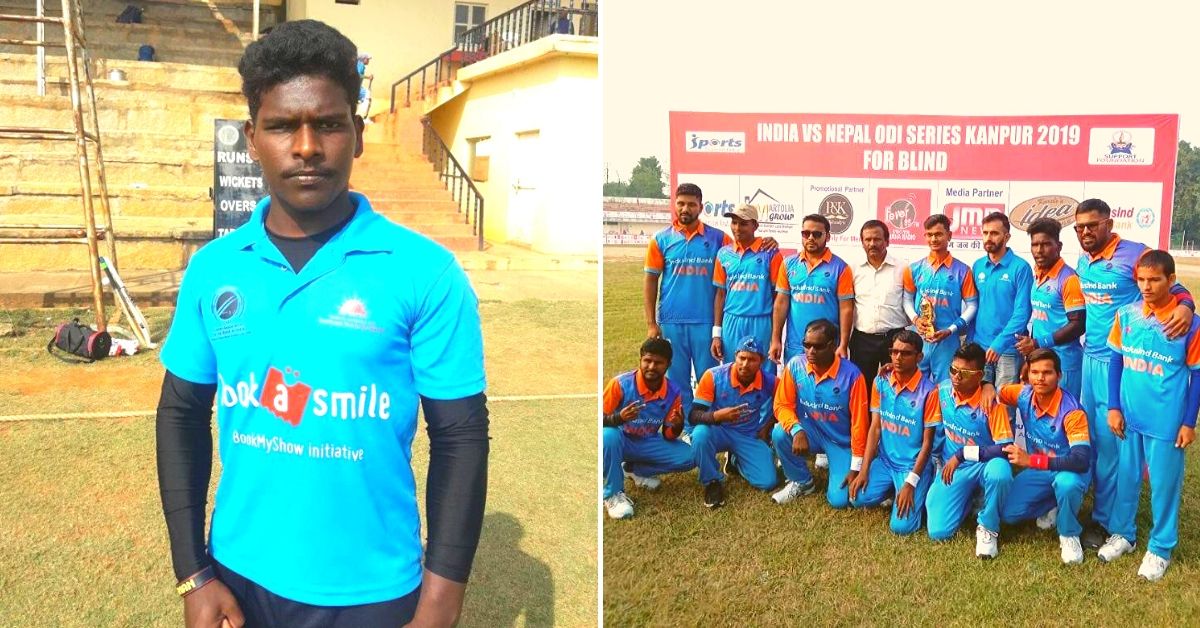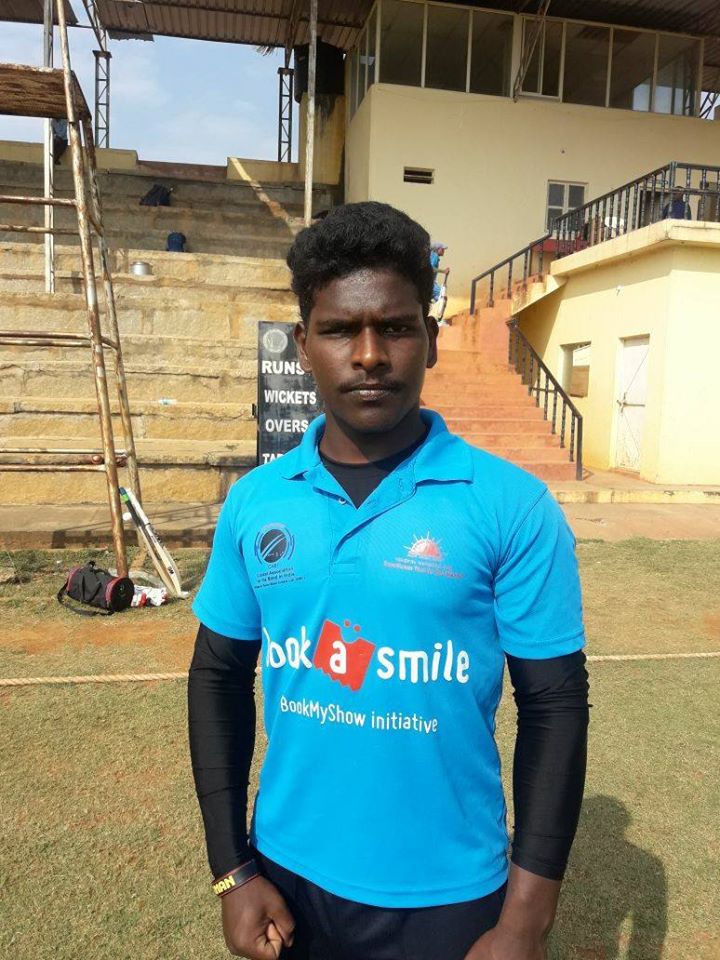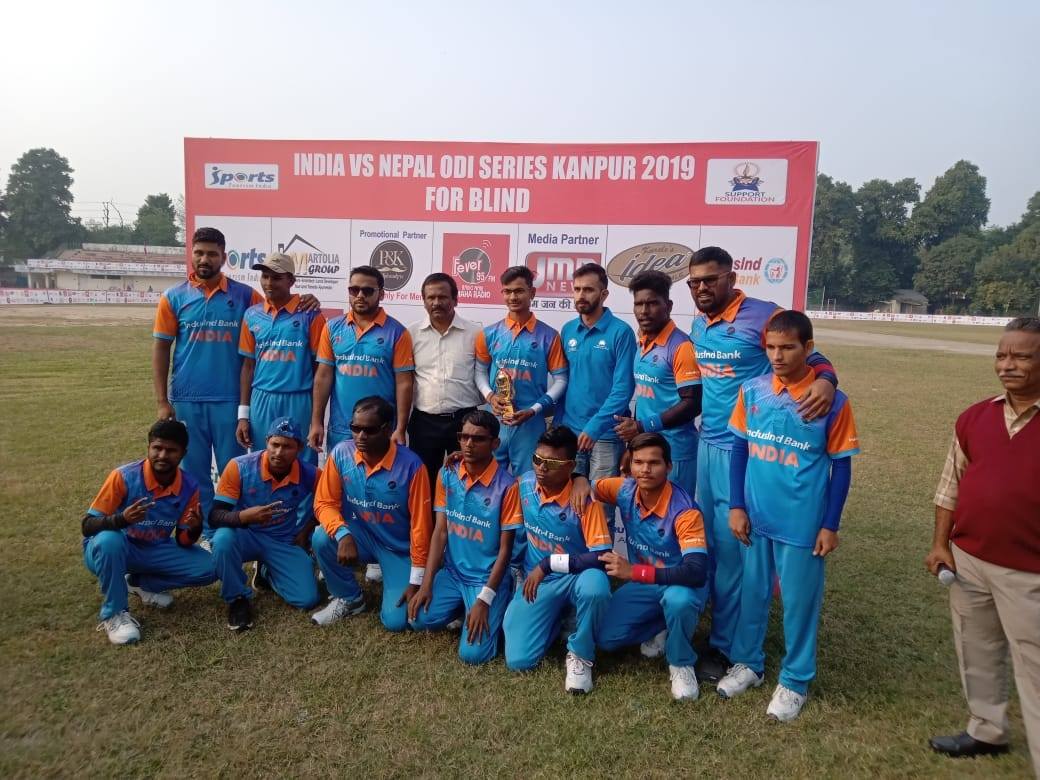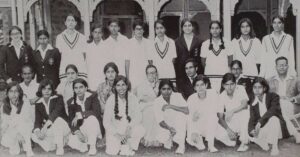Born Into Poverty, Lost His Sight at 7: India’s Blind Cricket Captain is All About Guts & Talent
"Playing for India is every child’s dream. I never expected that I would ever play for India. Words cannot describe the feeling of playing for India," says the swashbuckling batsman Sunil Ramesh Kumar, whose blistering innings helped India win the Blind World Cup last year. #Inspiration #Respect

Earlier this month, Sunil Ramesh Kumar, the captain of the Indian national blind cricket team led his team to a 3-0 ODI series win against their Nepalese counterparts.
If you think that is an achievement, wait till you hear his entire story.
From losing sight in his right eye when he was barely seven years old, and progressively losing sight in his other eye since, this son of daily wage workers has overcome extraordinary odds to make a name for himself.
Keep respiratory infections at bay with these air pollution masks that keep germs and airborne contaminants out!

Early struggles
Born on April 7, 1998, in Karnataka’s Guddadur village, Sunil grew up in extremely trying circumstances. His home had holes in the roof, was infested with rats and his daily meals included spoilt rice with pepper water.
But what kept him going was the love of his parents, who encouraged his passion for cricket.
“I have had a deep affection for the game since childhood, and even the minimal facilities couldn’t stop me from playing it everyday,” says Sunil, speaking to The Better India.
However, things changed dramatically one fine evening in 2005, during one such game.
“While trying to catch a ball, I walked into an area ridden with tall wild grass where I tripped and fell over an exposed wire, which pierced my right eye. The damage was intensive and lost sight in that eye. Initially, I didn’t know what was happening even though I was in extreme pain. Fortunately, my left eye was not hurt, but the injury did affect its performance to a large extent,” he recalls.
During the time after the horrific accident, his parents had to work on several estates in the area to not only cover the cost of treatment but also the entire rehabilitation process.
“Till Class 7, I was going to an ordinary school. As my eyesight got worse, I stopped playing cricket. Then, Jayanna Sir, our music teacher, told me about the Asha Kiran Blind Residential School for Blind Children near Chikmagalur,” recalls Sunil.
Sunil joined Asha Kiran in Class 8. There, he encountered kids playing the game and soon found himself joining in. Eventually, he met a coach, BL Goppal, who did not just recognise his immense talent but motivated him to hone it.
“I said to myself that there is nothing left for me in the past, so why not look to the future and win,” he recalls.
Rising beyond hardship
Selected to play for Karnataka blind cricket team in 2014 in the B3 category (a medical-based Paralympic classification for blind sport), he played his first game at Ramnagara, were he was adjudicated as the best batsman and fielder. From thereon Sunil went from strength to strength, racking up the runs for his state team.
Two years after making his debut for Karnataka, he was selected for the national team for the Asia Cup. The team would go onto win the tournament in style.
“Playing with all the experienced guys was fantastic. Words are not enough to describe my feelings,” he says.
His crowning moment came at the T20 Blind World Cup in January and February 2017, where he scored blistering centuries against both Australia and the West Indies. The team went onto beat Pakistan by nine wickets in the final to win the series.
“The T20 World Cup changed my life. I really made my mark there, and my performances in the tournament got me noticed,” he says.
His next big moment came during the Blind Cricket World Cup in January 2018, where India defeated Pakistan in the final.
Chasing 309 inside 39 overs at the Sharjah Cricket Stadium in UAE, Sunil top-scored for his side with a fantastic knock of 93 runs in 67 balls.
Noticing his talent for the game and ability to lead the side in high leverage moments, the officials appointed him as captain earlier this year, an honour he carries with immense pride. “My goals as a captain are to make this country proud and be an inspiration to the coming generations,” says Sunil, pride beaming through his voice.

Helping Hand Needed
It has been more than two decades since organised blind cricket was first played in India. The first World Cup was held in New Delhi, in 1998.
Although the broad principles are the same as compared to conventional cricket, there are differences. For one, bowling is underarm, and the bowler must call the batsman out before releasing the ball. Players are slotted into three categories—B1 (totally blind), B2 (partially blind) and B3 (partially blind).
The game isn’t easy by any stretch and players require tremendous amounts of trust, concentration to block out sounds outside the game and coordination given varying levels of vision. It’s the ultimate form of teamwork, particularly in the field where you have to focus more on what others are doing rather than yourself. Naturally, the captain’s job becomes a lot harder.
Even so, there are no significant remunerative benefits. While the Cricket Association for the Blind in India (CABI) has a sponsorship deal with IndusInd Bank, they genuinely need additional financial support. These players represent the same flag as their counterparts with sight, but don’t receive the same support.
“Yes, I have been able to support my family on a day to day basis. However, I am looking for a regular stream of income for my family. What I’m looking for is a government job. I have been promised a government job, but unfortunately, I am yet to receive any intimation in this regard. As blind cricketers, there is a lot of discrimination we face. All I wish to get is a stable job and help my family,” says Sunil.
The Government and people of India must support the likes of Sunil who have done nothing else but make the country proud. It’s the least we can do for them, given all that they have sacrificed for the country.
Also Read: The ‘Untouchable’ Cricketer Who Challenged the British & His Fellow Countrymen
(With additional inputs from Satya Gon)
(Edited by Gayatri Mishra)
Like this story? Or have something to share? Write to us: [email protected], or connect with us on Facebook and Twitter.
If you found our stories insightful, informative, or even just enjoyable, we invite you to consider making a voluntary payment to support the work we do at The Better India. Your contribution helps us continue producing quality content that educates, inspires, and drives positive change.
Choose one of the payment options below for your contribution-
By paying for the stories you value, you directly contribute to sustaining our efforts focused on making a difference in the world. Together, let's ensure that impactful stories continue to be told and shared, enriching lives and communities alike.
Thank you for your support. Here are some frequently asked questions you might find helpful to know why you are contributing?


This story made me
-
97
-
121
-
89
-
167














